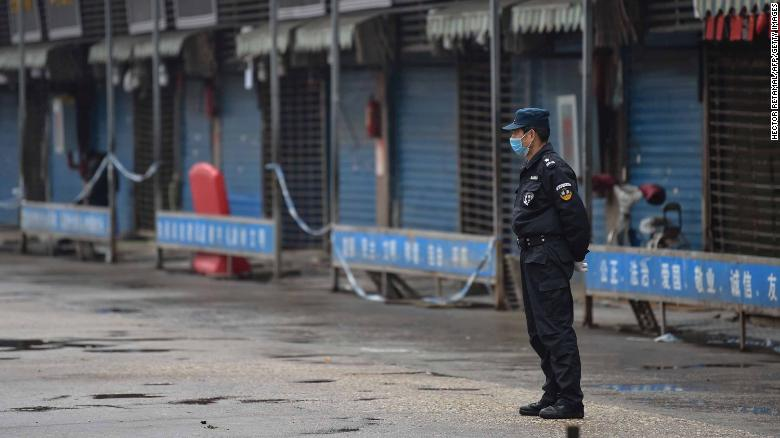Search the Community
Showing results for tags 'china'.
-
The missile tech firing up China’s Olympic swimming rockets Chinese aerospace company says Games squad used sophisticated sensors and wind tunnels to refine technique and cut drag Analysis formed a scientific basis for training programmes. https://www.scmp.com/news/china/science/article/3143403/missile-tech-firing-chinas-olympic-swimming-rockets?module=lead_hero_story&pgtype=homepage The country put in so much effort for training their Olympians.
- 22 replies
-
- 2
-

-

-
- missile tech
- china
-
(and 2 more)
Tagged with:
-
https://www.abc.net.au/news/2020-09-14/chinese-data-leak-linked-to-military-names-australians/12656668 China's 'hybrid war': Beijing's mass surveillance of Australia and the world for secrets and scandal By political editor Andrew Probyn and political reporter Matthew Doran Posted 19hhours ago, updated 15hhours ago The massive data leak raises serious questions about China's aggressive intelligence gathering operations.(Unsplash: Taskin Ashiq) Key points: 2.4 million names and profiles are on the database, including more than 35,000 Australians The company which created the database has links to China's government and military The leak raises further questions about the spread and scope of China's intelligence gathering operations A Chinese company with links to Beijing's military and intelligence networks has been amassing a vast database of detailed personal information on thousands of Australians, including prominent and influential figures. A database of 2.4 million people, including more than 35,000 Australians, has been leaked from the Shenzhen company Zhenhua Data which is believed to be used by China's intelligence service, the Ministry of State Security. Zhenhua has the People's Liberation Army and the Chinese Communist Party among its main clients. Information collected includes dates of birth, addresses, marital status, along with photographs, political associations, relatives and social media IDs. It collates Twitter, Facebook, LinkedIn, Instagram and even TikTok accounts, as well as news stories, criminal records and corporate misdemeanours. While much of the information has been "scraped" from open-source material, some profiles have information which appears to have been sourced from confidential bank records, job applications and psychological profiles. The company is believed to have sourced some of its information from the so-called "dark web". One intelligence analyst said the database was "Cambridge Analytica on steroids", referring to the trove of personal information sourced from Facebook profiles in the lead up to the 2016 US election campaign. Zhenhua Data's vast database has explicit references to use by military intelligence.(Supplied.) But this data dump goes much further, suggesting a complex global operation using artificial intelligence to trawl publicly available data to create intricate profiles of individuals and organisations, potentially probing for compromise opportunities. The database has been shared with an international consortium of media outlets in the US, Canada, United Kingdom, Italy, Germany and Australia, comprising the Australian Financial Review and the ABC. The media consortium sought comment from Zhenhua, but received no reply. Zhenhua Data's chief executive Wang Xuefeng boasted of using data to wage "hybrid warfare".(Supplied) The company's chief executive Wang Xuefeng, a former IBM employee, has used Chinese social media app WeChat to endorse waging "hybrid warfare" through manipulation of public opinion and "psychological warfare". Of the 35,558 Australians on the database, there are state and federal politicians, military officers, diplomats, academics, civil servants, business executives, engineers, journalists, lawyers and accountants. They range from the current and former prime ministers, to Atlassian billionaires Mike Cannon-Brookes and Scott Farquhar, and business figures David Gonski and Jennifer Westacott. But there are 656 of the Australians featured on the list as being of "special interest" or "politically exposed". Exactly what the company means by either of these terms is unexplained, but the people on the list are disparate in occupation and background, and there seems little to no explanation in who has made the list. The list includes current Victorian Supreme Court Judge Anthony Cavanough, retired Navy Admiral and former Lockheed Martin chief executive Raydon Gates, former ambassador to China Geoff Raby, ex Tasmanian Premier Tony Rundle and former foreign minister Bob Carr. Singer Natalie Imbruglia features in this list, along with One Nation co-founder David Oldfield, National Party President Larry Anthony, former treasurer Peter Costello's son Sebastian, ex-Labor MP Emma Husar, News Corp journalist Ellen Whinnett and rural businesswoman and ABC director Georgie Somerset. But it also has some Australians with a criminal past, including self-proclaimed Perth sheikh Junaid Thorne, Geelong accountant and fraudster Robert Andrew Kirsopp and ex-TEAC boss Gavin Muir who died in 2007 just weeks before he faced court for dishonesty offences. Singer Natalie Imbruglia and technology entrepreneur Mike Cannon-Brooks feature on the list.(AAP/ABC News) The database was leaked to a US academic based in Vietnam, Professor Chris Balding, who until 2018 had worked at the elite Peking University before leaving China citing fears for his physical safety. "China is absolutely building out a massive surveillance state both domestically and internationally," Professor Balding told the ABC. "They're using a wide variety of tools — this one is taken primarily from public sources, there is non-public data in here, but it is taken primarily from public sources. "I think it speaks to the broader threat of what China is doing and how they are surveilling, monitoring and seeking to influence… not just their own citizens, but citizens around the world." Professor Balding has returned to the United States, leaving Vietnam after being advised it was no longer safe for him to be there. It was also a grave risk taken by the person who leaked the database to him, who contacted him as he started publishing articles about Chinese tech giant Huawei. "We've worked very hard to make sure that there are no links between me and that person, once I realised what had been given to me," he said. "They are still in China. But hopefully I think they will be safe." 'Collection nodes' scattered around the world, one likely in Australia Christopher Balding was given the vast database, and has returned to the United States citing safety concerns.(Supplied: Fulbright University Vietnam) Professor Balding gave the database to Canberra cyber security company Internet 2.0 which was able to restore 10 per cent of the 2.4 million records for individuals. Internet 2.0's chief executive Robert Potter said Zhenhua had built the capacity to track naval vessels and defence assets, to assess the careers of military officers and catalogue the intellectual property of China's competitors. "This mass collection of data is taking place in China's private sector, in the same way Beijing outsources its cyber attack capability to private subcontractors," Mr Potter told the ABC. "In the process, the company has violated the privacy of millions of global citizens, the terms of service of just about every major social media platform and hacked other companies for their data." Of the 250,000 records recovered, there are 52,000 on Americans, 35,000 Australians, 10,000 Indian, 9,700 British, 5,000 Canadians, 2,100 Indonesians, 1,400 Malaysia and 138 from Papua New Guinea. There are 793 New Zealanders profiled in the database, of whom 734 are tagged of special interest or politically exposed. Zhenhua boasts it has about 20 "collection nodes" scattered around the world to vacuum enormous amounts of data and send back to China. Two of the nodes have been identified as being in Kansas in the United States and the South Korean capital Seoul. The Australian node has not been detected. The Zhenhua Data database monitors military assets, using things like social media posts of officers to plot out movements.(Supplied.) The military sector appears to be of particular interest to the company. The database tracks promotion prospects of officers and political networks. In one instance, the career progression of a US naval officer was closely monitored and he was flagged as a future commander of a nuclear aircraft carrier. "The company… boasts that it has 20 information collection centres spread around the world," Clive Hamilton from Charles Sturt University said. "This suggests that there's almost certainly one in Australia. So that means somewhere in Australia, there is a Chinese state-owned company that is sucking up data from across Australia and feeding it into China's intelligence service. "Well, where is that centre? And if we can find it, shouldn't we close it down? It would appear to be violating all kinds of laws." Academic Clive Hamilton argues it is likely a "collection node" is somewhere in Australia.(ABC News: Leon Compton) Professor Hamilton said the wide range of people named in this database provided serious cause for concern. "If you're a 14-year-old daughter of a politician, then we now know that China's intelligence service is monitoring your social media commentary, and recording pieces of information that are of interest or may be of interest in the future," he said. "So it really is quite sinister in the way that China is targeting so many aspects of society in a country like Australia for sucking up and storing this intelligence, and using artificial intelligence in a exceptionally sophisticated way." Concerns of aggressive intelligence gathering operations A Five Eyes intelligence officer, who uses the pseudonym Aeneas, has pored over the data, and described the technique as "mosaic intelligence gathering" — sourcing vast tracts of information from a wide variety of sources. "The individual pieces of intelligence are like tiles in a mosaic, which make sense when they are arranged the right way," Aeneas said. He argued it was a different way to collect information than how many western agencies went about their work. "For example, we had a long-running penetration operation inside a Chinese diplomatic post," Aeneas said. "You'd think we would have collected on everyone, but we didn't. "Not everyone inside the post was an intelligence operator for the other side. "We collected thoroughly on their spooks and stringers, but unless someone in the post was a possible source for us, we left them alone." Australia's fledgling space industry is also of some interest to Zhenhua. Queensland's Gilmour Space Technology, founded by banker Adam Gilmour, has been closely profiled by the company — so much so that every board member of the company has been profiled in the database. Zhenhua went looking for everyone in Australia with the surname Gilmour to probe the company. The discovery of Zhenhua's core business, known as the Overseas Key Information Database, or OKIDB, will fuel concern about China's aggressive intelligence gathering operations. It also presents a challenge to domestic cyber defence, given the likely presence of other hostile computer servers in Australia trawling public source data. Zhenhua Data, established in 2018, is believed to be owned by China Zhenhua Electronics Group which in turn is owned by state-owned China Electronic Information Industry Group (CETC), a military research company which had an association with the University of Technology Sydney until 2019. Zhenhua Data's parent company is believed to be the Chinese state-owned CETC, which previously partnered with the University of Technology Sydney.(702 ABC Sydney: Amanda Hoh)
-
One of China's tallest skyscrapers was evacuated Tuesday after it began to shake, sending panicked shoppers scampering to safety in the southern city of Shenzhen. Emergency management officials are investigating what caused the near 300-metre high SEG Plaza in Shenzhen's Futian district to wobble, according to a post on the Twitter-like Weibo. "After checking and analysing the data of various earthquake monitoring stations across the city, there was no earthquake in Shenzhen today," the statement said. "The cause of the shaking is being verified by various departments." Bystander videos published by local media on Weibo showed the skyscraper shaking on its foundations as hundreds of terrified pedestrians ran away on the street outside. The tower began to shake at around 1pm Tuesday, after which all people inside were evacuated and it was sealed shut as of 2:40pm, according to local media reports. The tower is home to a major electronics market as well as various offices. cant see the wobblin or shaking thou or maybe its one person anyhow geisiao shout & cause panic then cause mayhem lollllllllllllllllllllllllllll............. for such a tall buildin, if the foundation is weakened somehow... is there even a way to strengthen it????
- 34 replies
-
- 5
-
.png)
-

-

-
- wobble
- skyscrapper
-
(and 1 more)
Tagged with:
-
I see many bros here like to talk about China history. Lets discuss here.
-
Think glass bridge is safe? The article below mentioned this is not the first case, there are other cases of glass bridges broken off. China is still not there in terms of safety, and quality. https://sg.news.yahoo.com/china-man-left-dangling-bridge-140629849.html China: Man left dangling from bridge after glass breaks A man in China was left dangling from a bridge after its glass panels were damaged in high wind. The man was visiting the 100m-high bridge (330 ft) in the Piyan Mountain, in the north-east of the country, when the incident occurred on Friday. Several pieces of the glass floor were blown away by winds that reached up to 150km/h (90mph). It is thought that China has about 2,300 glass bridges and a number of glass walkways and slides. They are designed to attract thrill-seeking tourists and capitalise on China's growing domestic tourism. An image widely shared on social media shows the man dangling in the middle of the bridge, located in a scenic area near the city of Longjing. Firefighters rushed to the scene to rescue the man. However he managed to get back to safety himself with the help of on-site staff, Xinhua news agency reports. The tourist was taken to hospital for observation and counselling, and is now said to be in a "stable emotional and physical condition". The area has been closed, according to Longjing City's Weibo page. An investigation into the incident has been launched. 'Scary' glass bridges shut in Chinese province Do you dare cross China's glass bridges? It is not the first accident of its kind in China. In 2018, Hebei province shut all of its 32 glass attractions - including bridges, walkways and viewing decks - while safety checks were carried out. Elsewhere in the country, one person died and six others were injured in 2019 after they fell off a glass slide in Guangxi province. In 2016, a tourist was injured by falling rocks while walking on a glass walkway in the city of Zhangjiajie.
- 37 replies
-
- 5
-

-
.png)
-
- glass brige
- china
-
(and 1 more)
Tagged with:
-
-
Undercover reporter in China works his way from entry-level sales to executive role to expose a corrupt used car company, China News - AsiaOne https://www.asiaone.com/china/undercover-reporter-china-works-his-way-entry-level-sales-executive-role-expose-corrupt-used Selling at higher price than paid? Huh isnt that business? Like this all used car dealers in SG are scammers liao. Or just BAD article writing by our SPH.
- 25 replies
-
- 2
-
.png)
-
- used car dealer
- scam
-
(and 1 more)
Tagged with:
-
In all fairness to Donald Trump, i started this thread.
- 71 replies
-
- 7
-
.png)
-

-
- xijingping
- china
-
(and 1 more)
Tagged with:
-
Alibaba and SAIC have joined forces to launch an all-new automotive brand called IM (智己). Set to become China’s latest premium electric vehicle maker, the company will have a lineup that includes a stylish sedan and crossover. The sedan features a streamlined design and an intelligent lighting system which reportedly consists of 2.6 million pixels of light. They can be used to show animations as well as the charging status. Besides the high-tech lights, the sedan has flush-mounted door handles and aerodynamic wheels. We can also see a panoramic glass roof, a roof-mounted sensor pod and full-width taillights. The upscale styling continues in the cabin as drivers will find semi-aniline leather, wood trim and metallic accents. The sedan has also been equipped with dual pane windows and electric closing doors. Those features are nice, but they’re largely overshadowed by a 39-inch widescreen display that rises out of the dashboard and is broken up into three different sections. If that wasn’t enough screen space, there’s a secondary 12.8-inch display that ramps out of the center console like in the 2021 Mercedes S-Class. Speaking of technology, the car has been equipped with 15 high-definition cameras, 12 ultrasonic sensors and five millimeter wave radars. They’re used for the semi-autonomous driving system and Tesla-like summon feature. At the end of the year, IM will reportedly offer point-to-point autonomous driving. Details are limited and it’s reportedly dependent on government approval. However, NVIDIA confirmed the vehicles use their DRIVE Orin compute platform and have multiple Orin SoCs. They allow for “500 to 1,000+ TOPS [trillion operations per second] of performance for automated and autonomous capabilities in addition to in-cabin personalization that is continuously upgradable over-the-air for a truly software-defined experience.” On the performance front, there are two electric motors which give the vehicles all-wheel drive as well as a combined output of 536 hp (400 kW / 544 PS) and 516 lb-ft (700 Nm) of torque. This will enable the sedan to accelerate from 0-62 mph (0-100 km/h) in 3.9 seconds. A 93 kWh battery comes standard, while a 115 kWh battery will also be available. With the latter, the sedan will reportedly have a range of up to 543 miles (874 km) in the NEDC cycle. Interestingly, the car is set to come with the world’s first mass-produced high-speed wireless electric vehicle charger. It charges at up to 11 kW and can give the car a range of 43-50 miles (70-80 km) in as little as an hour. Getting back to performance, the vehicles ride on an aluminum architecture and feature chassis tuning by Williams. We can also expect an adaptive damping system and rear wheel steering. The sedan will be showcased at the Shanghai Auto Show in April, while the crossover will follow in 2022.
- 9 replies
-
- 13
-

-
.png)
-
- electric vehicle
- electric car
-
(and 3 more)
Tagged with:
-
China woman was shouting n resisting arrest Dun see anything wrong with wad spf did police should arrest abang for obstructing police work abang confronted the police n asked for his name kept insisting cannot use force on a woman cannot handcuff a woman need to call female police to come arrest spf should also issue summon to abang for not wearing mask in public hello $300 fine please
- 113 replies
-
- 16
-

-

-
.png)
-
I have a hard time deciding the title for this thread, as there are many things to write about this new Mercedes-Benz model, and I actually wish it could be made available in Singapore, but I know it is mission impossible for now, since it is only available in LHD format (so PI route is out too). Now let take a quick glimpse at this model I am talking about. Does it not reassembled the larger Mercedes-Maybach S-Class (X222), especially the quart window at the C-pillar? So what is this unique model that got me so excited? Well it is the... ... Mercedes-Benz E-Class Long Wheel Base (V213), exclusive to the China market. Anyone grab the variant shown in the above photos? It is the E350L. Now that is another talking point... Under the hood, there’s an assortment of engines, and thus the choice of model variant, which shall be very different from our past understanding of Mercedes nomenclature. Starting with the entry level E280L (notice I use 'entry level'), it use the same 1.5-liter four-cylinder engine with mild hybrid found in the CLS260, which produces 184ps (135KW) and 280Nm of torque. It enables the E280L to accelerate from 0 - 100km/h in 8.7 seconds (9.0 seconds for all-wheel drive). Up next, the E300L, which has a 2.0-liter four-cylinder engine pumping out 258ps (190KW) and 370Nm of torque. This variant come standard with all-wheel drive setup, and the dash to 100km/h is reduce significantly 6.6 seconds. Finally, the top of the range E350L 4MATIC (sound / look sibeh atas right), uses an upgraded 2.0-liter four-cylinder engine (instead of a 3.0L V6) which now produces 299ps (220KW) and 400Nm of torque. It allow a century sprint timing of 6.1 seconds.
- 20 replies
-
- 19
-

-
https://edition.cnn.com/2020/03/05/asia/china-coronavirus-wildlife-consumption-ban-intl-hnk/index.html Hong Kong (CNN)A strict ban on the consumption and farming of wild animals is being rolled out across China in the wake of the deadly coronavirus epidemic, which is believed to have started at a wildlife market in Wuhan. Although it is unclear which animal transferred the virus to humans -- bat, snake and pangolin have all been suggested -- China has acknowledged it needs to bring its lucrative wildlife industry under control if it is to prevent another outbreak. In late February, it slapped a temporary ban on all farming and consumption of "terrestrial wildlife of important ecological, scientific and social value," which is expected to be signed into law later this year. But ending the trade will be hard. The cultural roots of China's use of wild animals run deep, not just for food but also for traditional medicine, clothing, ornaments and even pets. This isn't the first time Chinese officials have tried to contain the trade. In 2003, civets -- mongoose-type creatures -- were banned and culled in large numbers after it was discovered they likely transferred the SARS virus to humans. The selling of snakes was also briefly banned in Guangzhou after the SARS outbreak. But today dishes using the animals are still eaten in parts of China. Public health experts say the ban is an important first step, but are calling on Beijing to seize this crucial opportunity to close loopholes -- such as the use of wild animals in traditional Chinese medicine -- and begin to change cultural attitudes in China around consuming wildlife.
- 31 replies
-
- 2
-

-
https://asia.nikkei.com/Editor-s-Picks/China-up-close/China-portrays-Xi-the-Great-tamer-of-floods?utm_campaign=RN Subscriber newsletter&utm_medium=china_up_close_newsletter&utm_source=NAR Newsletter&utm_content=article link&del_type=9&pub_date=20200828004507&seq_num=2&si=44594 Yu the Great became a legendary ruler in China for his introduction of flood control. Will President Xi Jinping be credited for harnessing the floods of 2020? (Nikkei Montage/Source photos by AP and Getty Images) China portrays 'Xi the Great,' tamer of floods President shows who's boss, while premier is sidelined in the mud KATSUJI NAKAZAWA, Nikkei senior staff writerAugust 27, 2020 06:10 JST TOKYO -- Despite serious flood damage in various parts of China, President Xi Jinping had not visited any of the impacted areas. But on Aug. 18, Xi suddenly appeared in flood-hit Anhui Province for an inspection, one that seems to have followed the conclusion of the annual summer gathering of Chinese Communist Party leaders and elders, the Beidaihe meeting. "He must have been warned by elders about the special meaning of flood control in Chinese politics," one party source said. Wearing shiny leather shoes and smiling under the blue Anhui sky, Xi talked with local folks about flood prevention, river management and disaster relief. "The foolish old man removes the mountains, and 'Yu the Great' controlled the waters," Xi said, according to a Xinhua News Agency roundup of the four-day visit. "The Chinese nation has fought against natural disasters for thousands of years and accumulated valuable experience. We should continue to fight," he said, not by fighting against God, but by respecting nature and complying with natural laws. By referring to Yu the Great, a legendary emperor in ancient China who put in place irrigation canals that channeled water to fields, Xi highlighted China's several-thousand-year history of fighting natural disasters. President Xi addresses military personnel assigned to flood-protection duty in Anhui Province. China's history is filled with tales about maintaining or gaining political power by controlling and channeling water. © Xinhua/Kyodo It is true that flood control has been particularly significant in China. Bringing raging rivers under control was so difficult that people who had the ability to harness the waters were fit to become kings or emperors. Failure to control floods meant farmers would suffer and be driven to their deaths. As China's "core" leader, that responsibility today falls on Xi. Furthermore, this year is the Year of Geng Zi, or Metal Rat, which comes once every 60 years and is said to always bring with it a big history-shaking incident, which the superstitious Chinese take seriously. Already, the country has been hit hard by the coronavirus. True to Metal-Rat year form, the outbreak has not been the only calamity. Floods are also causing damage even greater than the floods of 1998. Back then, President Jiang Zemin postponed an official visit to Japan to see to relief efforts in the Yangtze River basin and the northeastern part of the country. It is not hard to imagine that Jiang had a word or two to say about flood control at the Beidaihe meeting. Then President Jiang Zemin in Wuhan, Hubei Province, oversees the response to what in the summer of 1998 was China's worst flooding in 44 years, when storms took more than 2,000 lives and left millions homeless. © AP/Kyodo In fact, many of the party elders are specialists on the topic. Hu Jintao, Xi's immediate predecessor as Chinese president, worked as a hydroelectric power generation-related engineer after graduating from the Water Conservancy Engineering Department of the prestigious Tsinghua University. Wen Jiabao, who served as Chinese premier in the Hu administration, is a geology expert. While in Anhui, Xi also referenced a foolish old man who tried to remove mountains, arming himself with the political connotations of a Chinese fable of an elderly man who lived in northern China. Bothered by two mountains that stood in front of his doorway, blocking the view and the path, the man, with the help of his sons, began digging through them with hoes and baskets. When questioned by another man why he was undertaking such a foolish task, the old man replied that when he dies his sons will carry on, as will his grandsons and then their sons and grandsons, and so on to infinity, ultimately removing the peaks. Impressed by his conviction, God sent down two angels who carried the mountains away on their backs, the tale goes. Mao Zedong, communist China's founding father, was fond of citing this story. When he visited the Soviet Union, Mao told it to Josef Stalin, to counter the tale of the Gigantic Turnip, a Russian folk tale the host had mentioned in preaching the importance of cooperation between the two countries. Russia's President Vladimir Putin shakes hands with his Chinese counterpart Xi Jinping at the Kremlin in March 2013. Former Chinese leader Mao Zedong told Josef Stalin the tale of the foolish old man during a visit to the Soviet Union. © Reuters During the same tour, Xi inspected the floodgates of the Wangjiaba Dam on the Huai River. In 1950, shortly after the People's Republic of China was founded in October 1949, the Huai River, which flows through Anhui, was hit by severe flooding. Mao issued an order to control the floods at any cost. The floodgates Xi visited were quickly constructed on Mao's instructions. Once again, Xi was overlapping himself with Mao, perhaps in preparation for a difficult political situation ahead. Chinese state media played along, publishing a photograph of Xi swaggering and strutting with a smile in front of a wall with Mao's calligraphy inscribed on it. While Xi was in the spotlight, Premier Li Keqiang was visiting another flood-hit area, one about 1,000 km away, but was mostly ignored. It is quite unusual for China's top two leaders to be away from Beijing at the same time on inspection tours. On Aug. 20, two days after Xi arrived in Anhui, Li inspected a flood-affected area of Chongqing as the metropolis was still in the throes of the disaster. Wearing rain boots, Li trudged through muddy waters. Usually, such images receive high praise from citizens, and comments about "the people's premier" staying close to the people fill social media platforms. It is hard to argue that Premier Li Keqiang has not been sidelined. © Chinese government Weibo/Kyodo But not this time. Perhaps this is because many Chinese people were not told of the trip. Li's Chongqing visit was initially reported only by www.gov.cn, the website affiliated with the State Council, the Chinese government headed by him. Major Chinese media outlets such as state-run Xinhua News Agency, state-run China Central Television and party mouthpiece the People's Daily officially reported Li's inspection tour an unusually tardy three to four days later. Furthermore, the major Chinese media outlets treated Li's inspection tour as the fourth most important news item of the day, at best. The reports did not mention when Li visited Chongqing. If they had, questions would have been raised about why the coverage ran so belatedly. Chongqing news outlets also reported the trip after a delay, despite the fact that Chen Min'er, the city's party secretary and a close aide to Xi, accompanied Li on his inspection tour. The downplaying of Li's trip was likely an attempt to play up the Anhui visit made by Xi, China's unrivaled "core" leader. Li has also been sidelined in discussions about a future long-term economic plan. On Monday, an important meeting chaired by Xi was held at Beijing's Zhongnanghai, home to party and government headquarters. Xi listened to economic experts' opinions on a new five-year plan that starts next year. Among the meeting participants were China's No. 5 Wang Huning and No. 7 Han Zheng, both Politburo Standing Committee members, as well as Vice Premier Liu He and party publicity chief Huang Kunming. Li, whose primary job is economic management, was not present. By rule, Li is set to remain a member of the party's top decision-making body at least until the autumn of 2022 and premier until the spring of 2023. Nevertheless, China's No. 2 is not presiding over discussions about the 2021-2025 plan. It is hard to argue he has not been sidelined. Chinese politics under Xi's rule is always harsh. His faction controls key positions in party publicity, which is likely what led to the media's extremely unequal treatment of the flood inspection tours. In addition to the next five-year plan, an ultra-long-term economic outlook for 2035 will also be discussed at the fifth plenary session of the party's 19th Central Committee, in October. Xi stressed at the meeting on Monday the importance of adopting "a long-term perspective," of grasping the direction of the times and extensively pooling wisdom to study new circumstances and make new plans. In effect, he has been showing the Chinese people who's boss and telling them his reign is set to last into the foreseeable future. Katsuji Nakazawa is a Tokyo-based senior staff writer and editorial writer at Nikkei. He has spent seven years in China as a correspondent and later as China bureau chief. He is the 2014 recipient of the Vaughn-Ueda International Journalist prize for international reporting.
-
Don't get any wrong ideal ........... It's China Smartphone. Yahoo News : China’s Xiaomi confirms it will bring its smartphones to Singapore this year Today Xiaomi, the Chinese smartphone maker known for selling top-notch handsets at bargain bin prices, revealed via social media that it’s next stop beyond the Greater China will indeed be Singapore. Yesterday Xiaomi’s Hong Kong and Taiwan Facebook pages posted messages featuring the company’s rabbit mascot beside a Chinese dragon proclaiming “Hello Singapore”, linking to a Xiaomi Singapore Facebook page. However, now that Hugo Barra posted the same picture on his Google+ profile page, the proverbial writing is on the proverbial wall. Curiously, the Singapore Facebook page appears to have been created in May 2013 – three months before Barra got on board. This might indicate that Xiaomi had been eyeing the move for some time. Xiaomi had publicly indicated that its next overseas stop beyond Taiwan and Hong Kong would be Singapore back in December when it held a fan meetup in Taipei. The move to the city-state will test the company’s chops in a market in which consumers have higher incomes on average. It also will be branching out from exclusively Chinese-speaking markets into a multi-lingual market. Just this morning Xiaomi announced that it had sold over 18 million handsets in 2013, more than twice the 7.19 million it doled out the previous year. In 2014, it’s hoping to hit 40 million. As for revenues, the company raked in over $5.18 billion for the year. Saw it in China last month whilst visiting Hainan Island. Nice and light, only problem is program all in Chinese wording which reframe me from buying....
- 1,221 replies
-
- smartphone
- xiaomi
-
(and 4 more)
Tagged with:
-
https://asia.nikkei.com/Editor-s-Picks/China-up-close/Xi-Jinping-sends-shock-waves-with-his-2035-manifesto Former Chinese leader Mao Zedong ruled until his death at 82. Many think President Xi Jinping is eyeing the possibility of staying in office until 2035, when he too will be 82-years-old. (Nikkei montage/AP/Reuters/Getty Images) Xi Jinping sends shock waves with his 2035 manifesto A coded news release signals the president's intent to be 'leader for life' KATSUJI NAKAZAWA, Nikkei senior staff writerAugust 6, 2020 04:09 JST TOKYO -- At the end of last month, the Chinese Communist Party announced it will convene a key policy meeting in October. "The fifth plenary session of the 19th Central Committee of the Communist Party of China will be held in Beijing in October," the Xinhua article read. Attendees will assess the proposals for the next five-year plan that spans 2021 to 2025 "and future targets for 2035," it said. For China watchers around the world, the second half of that sentence is a coded message that could not go unnoticed. "President Xi Jinping really does intend to stay in power for the long run," one political pundit said. "This must be, in effect, the manifesto for the next 15 years." While China has modernized over the years, it still retains some remnants of its socialist planned economy era, including the formulation of five-year plans. Therefore, the decision to discuss a new plan comes as no surprise. But to plan for a decade beyond that, all the way to 2035, does not come from any textbook, and it raised many eyebrows. Chinese President Xi Jinping, center, is seen with other members of the Politburo Standing Committee in Beijing. © AP In a world where the near future is becoming increasingly unclear, especially as the coronavirus pandemic rages on, looking 15 years down the road is far-fetched, even for the strategic-thinking Chinese. It would be equivalent to drawing up three five-year plans in one stroke. What political intentions lie behind the move? Veteran party officials will easily realize what they are. Upon hearing about the ultra-long-term plan for 2035, one political pundit reacted by citing a quote by Zhuge Liang, the master strategist from the Three Kingdoms period. "Spare no effort unto one's dying day." It was a slogan the top bureaucrat liked to use to express his resolve when he went to war. Doing one's best until one's death might sound like a compliment to Xi's resolve, but the reality is this pundit was speaking sarcastically in a way unique to China. The key here is Mao Zedong, the founding father of "new China," who reigned over China until his death at 82. For Xi, who was born in 1953, the year 2035 is when he too will turn 82. Mao was the "eternal chairman" of the Communist Party. By comparing himself to Mao, Xi is trying to pave the way to becoming the second leader to stay in power for life. Naturally, not everybody in the party is thrilled with Xi's daring ambition. Those opposed to his ultralong reign cannot speak out loudly but occasionally attempt to put up resistance using various methods, perhaps circling around like a bee looking to sting. "Things are moving too soon," one veteran party source said. Already in July the party has decided what to discuss in an October meeting, he noted. Chairman Mao Zedong makes a report at the second Plenary Session of the Seventh Central Committee of the Communist Party of China in 1949. (AP Photo/Hsinhua News Agency) © AP According to the communist calendar, this summer will be a crucial period that will affect the future of the Xi Jinping era. That is because ahead of the next quinquennial party National Congress in 2022, it will be this year, not next, when the framework of the discussions will come together. The prelude to a full-scale political battle over the 2022 national congress is already underway. In some cases, the outline of key personnel changes at the congress, including specific names, will be discussed this year. From Xi's standpoint: Victory goes to the one who makes the first move. Certainly now is not the time to play defense. With the domestic economy in the doldrums and relations with the U.S. in tatters, Xi would not be able to make much of an argument if he were defending himself in front of party elders. If Xi can make people think that his status will be secure, overseeing the party's national congresses in 2022, then in 2027 and even in 2032 as China's de facto top leader, party members, including those who do not belong to Xi's faction, will come to heel en masse. They will serve the powerful for their own good at the end of the day. On the other hand, Xi's boldness could backfire, resulting in an even harsher feud with rivals. If party elders or rivals see this summer as their last chance to make their case, there is no shortage of topics with which to go after him. An aerial view of workers building a utility tunnel, a passage built underground or above ground to carry utility lines such as electricity, steam, water supply pipes, and sewer pipes, at the Xiong'an New Area. © AP Looking back, Xi was also on the offensive at the party's last national congress, in 2017, the last national congress. Shortly before the event, Sun Zhengcai, then the top official of Chongqing and a candidate to succeed the top leader in the future, fell victim to Xi's signature anti-corruption campaign. At the party's 2017 congress, five years after he took the helm of the party, Xi also succeeded in doing something that was thought to be impossible: enshrining his eponymous ideology in the party's constitution. Months later he scrapped the presidential limit of two five-year terms. In China today, many governmental programs have completion dates of 2035. The Xiong'an New Area, a massive new city in Hebei Province, is among them. The project is proceeding with Xi's full backing. Last month, Xi declared that the BeiDou Navigation Satellite System, China's answer to GPS, had formally started global operations. A Chinese official in charge of the system has made clear that it will be upgraded by 2035. Xi attends the completion and commissioning ceremony for the Beidou Navigation Satellite System in Beijing on July 31. © AP Chinese officials are publicly referring to "Made in China 2025" much less frequently now that the blueprint for upgrading the country's high-tech industries has come under fire from the U.S. This shows a certain degree of consideration to the international political situation. But the ultra-long-term plan for 2035 is at the core of Xi's politics, and China will push ahead with it regardless of Beijing's external relations if domestic politics demand it. Naturally, China's confrontation with the U.S. will intensify. In mid-July, Chinese netizens prematurely celebrated the culmination of a long-held dream. The country's April-June gross domestic product, it was believed, had finally overtaken that of the U.S. "The great rejuvenation" had happened, they said, and the country had regained its status as the world's top economy, which it had held before being defeated by the U.K. in the 1840-1842 Opium War. This turned out to be incorrect due to miscalculations over month-on-month comparisons and year-on-year growth rates, but it is true that China is closing in on the U.S. in terms of economic size. "No country or individual can stop the historical pace of the great rejuvenation of the Chinese nation," Xi has repeatedly said, reflecting his confidence that China will be able to overtake the U.S. His supporters would say that extending his reign until 2035 is a necessary component to realize "the great rejuvenation of the Chinese nation." The cursed year of 2020 means little to the leader, if he is thinking in much longer time frames. Would his plan really be accepted under the current circumstances? A tentative answer to this question will become clear when the fifth plenary session concludes in October. Katsuji Nakazawa is a Tokyo-based senior staff writer and editorial writer at Nikkei. He has spent seven years in China as a correspondent and later as China bureau chief. He is the 2014 recipient of the Vaughn-Ueda International Journalist prize for international reporting.
- 8 replies
-
- 5
-

-
- xi jinping
- president
-
(and 1 more)
Tagged with:
-
what are the possible t n c? not interested in electric cars yet just sharing. have seen the e6 n the interior is too basic for my liking like a blast from the past. at that range top up 10k+- the MG ZS looks a little more attractive n u get more space. paying for both china make aanyway http://m.sgcarmart.com/new_cars/promo.php?CarCode=12537
-
https://www.foreignaffairs.com/articles/asia/2020-06-04/lee-hsien-loong-endangered-asian-century
- 24 replies
-
- 3
-

-
- china
- unitedstates
-
(and 1 more)
Tagged with:
-
Teaser... Can you make out what will LM look like with the above photo? Here is one more. Can't imagine a thing? OK, this is the obvious one... Yes, it look like a badge-engineered Toyota Alphard. And here are some nice CGIs. The car will be officially unveiled during the upcoming Shanghai Motor Show, on 16 April. Stay tuned for more info.
- 35 replies
-
- 14
-

-
oh wow, 5000 years history of integrity.
-
A passenger who died on a bus in China has tested positive for a completely different virus than COVID-19 — one more fatal that often produces very similar symptoms, according to state-run media. The unidentified victim from Yunnan province died while on a chartered bus heading to his workplace in Shandong province, the state-run Global Times announced in a tweet Monday. “He was tested positive for #hantavirus. Other 32 people on bus were tested,” the outlet stated, offering no further details. The suggestion of a new virus starting just as China starts lifting its strict quarantines from COVID-19, which originated in the Asian nation, sparked panic among many on social media, with #hantavirus trending. However, experts were quick to point out that it is not a new virus — and has only rarely thought to have been passed between humans. “The #Hantavirus first emerged in 1950s in the American-Korean war in Korea (Hantan river). It spreads from rat/mice if humans ingest their body fluids. Human-human transmission is rare,” Swedish scientist Dr. Sumaiya Shaikh tweeted. “Please do not panic, unless you plan to eat rats,” she stressed. The US Centers for Disease Control and Prevention (CDC) said hantavirus is rare — but put the death rate at 38 percent. Symptoms may occur up to eight weeks “after exposure to fresh urine, droppings, or saliva of infected rodents,” the CDC says, noting it can occasionally also come from bites from infected rats or mice. The symptoms in many ways mirror those reported from the novel coronavirus — with sufferers reporting fevers, headaches, coughing and shortness of breath. One patient likened it to “a tight band around my chest and a pillow over my face,” the CDC said. That is almost identical to what those with COVID-19 have reported, with Rep. Ben McAdams recently saying he “felt like I had a belt around my chest.” Hantavirus pulmonary syndrome became a “nationally notifiable disease” in the US in 1995, but there have been no known cases transmitted between people, the health group says. “In Chile and Argentina, rare cases of person-to-person transmission have occurred” in the case of one strand named Andes virus, the CDC says. “There is no specific treatment, cure, or vaccine for hantavirus infection,” the CDC warned, saying patients often need intensive care to “help them through the period of severe respiratory distress.” “Therefore, if you have been around rodents and have symptoms of fever, deep muscle aches, and severe shortness of breath, see your doctor immediately,” it warns. https://nypost.com/2020/03/24/man-who-died-on-bus-in-china-tests-positive-for-hantavirus/
- 14 replies
-
- 3
-

-

-
- hantavirus
- china
-
(and 3 more)
Tagged with:
-
Having been very much involved in the 2003 pandemic outbreak, which spread across >35 countries and killing almost 800 people, I do not wish to see any diseases of such kind in my life again. I was one of the member in MOH committee to map out the quarantine and employee health screening requirement, and at the same time working closely with MOM and our regional team to map out the pandemic response plan, which include splitting functional team into 2 or more groups, to be stationed in different offices. I can tell you that everyone, including personnel from MOH and MOM, are clueless as to what is the best approach, so every suggestion and reasoning counts. One of my colleague was infected when he went to SGH for his regular medical checkup and died a few days later. The saddest part is that none of us were able to send him off (he was in fact cremated on the same day for fear of spreading the virus further). Dr Alexandre Chao, the only son of Professor Chao Tzee Cheng (renowned forensic pathologist in Singapore), was one of the 33 who died from severe acute respiratory syndrome (Sars), while serving in a hospital fighting the deadly virus. China probes pneumonia outbreak for Sars links: State media BEIJING (AFP) - China is investigating an outbreak of atypical pneumonia that is suspected of being linked to Sars, the flu-like virus that killed hundreds of people a decade ago, state media reported on Tuesday (Dec 31). A team of experts from the National Health Commission were dispatched on Tuesday to Wuhan, in central China's Hubei province, and are "currently conducting relevant inspection and verification work", state broadcaster CCTV reported. An emergency notification issued on Monday by the Wuhan municipal health committee said hospitals in the city have treated a "successive series of patients with unexplained pneumonia", without offering details. Chinese news site The Paper reported 27 cases of viral pneumonia in Wuhan in December, citing unnamed health officials from the city. "Of the 27 cases, seven were critical, the rest were under control, and two patients are expected to be discharged from hospital in near future," The Paper said. It is unclear whether all these patients are suspected of having contracted severe acute respiratory syndrome (Sars), a highly contagious respiratory disease. The emergency notification has urged hospitals to offer treatment and report cases in a "timely manner".
-
Heey all Any difference in quality between the 2? I cannot seems to find thai made Primacy 4 (235/55/18). Was offereed the chinese made option. So at a dilemma. Anyone can suggest or feedback?
-
https://mothership.sg/2020/01/china-bungee-jumping-pig/ Seriously what's with humans man. They should be thrown off the ledge instead without the harness. A colleague of mine showed me this video and first reaction was "China right?" Pig with a Superman cape bungee jumping. Maybe they meant for it as a joke but honestly it's so sick it ain't even funny. If you wanna eat your pork, you eat your pork. No one's gonna call you out for animal cruelty etc since neither of us are saints including vegetarians/vegans because who are we to say vegetables can't feel lol, but don't do such shit.
- 35 replies
-
- 12
-

-

-

-

-
.png)
-
- pig
- year of the rat
-
(and 3 more)
Tagged with:
-
China Canteens Look Like Exam Halls After Virus Outbreak, Netizens Joke Around Like Invigilators source: https://mustsharenews.com/china-canteens-exam-halls/ Netizens In China Joke About ‘Exam Hall’ Canteens As Tables Are Set Apart From Each Other Although the ongoing coronavirus pandemic has turned some places in China into a ghost town, it has not hindered Chinese netizens’ sense of humour. Tables in canteens in China now stand so far apart, they look odd. While this measure may seem perfectly rational, the topic started trending on Weibo with 3.14 million posts to date. The topic was 食堂吃出了考试的感觉 (shi tang chi chu le kao shi de gan jue), which loosely translates to “I felt like I was sitting for an examination in the canteen”. Netizens mimicked invigilators The familiar, yet anxiety-inducing sight amused many netizens, who contributed pictures of the canteens they ate at. To add to the humour, they imitated the way invigilators would talk during the examination. “Let’s see who will hand in their scripts first. No sitting closely and talking while you eat.” Another netizen added: “No peeping at others eating. The student over there please turn back.” There was even a ‘signage’ in front of this canteen warning others that this “examination hall canteen” only allows one person per table. For many students, lunch hour has suddenly become an examination. Maybe they’ll have to hand up empty plates to pass the test. But what if the tables and chairs come in inseparable sets? This school used cardboard dividers which they even cling-wrapped for better protection. This netizen said she liked the exam hall format more — because she can watch her dramas without being interrupted. At least those who often have their meals alone won’t be the only ones doing so now. A strange but necessary measure Not seeing people mingling or hearing the usual lunch hour buzz in school canteens may be an unsettling phenomenon, but we know this is the best way for now. Hopefully once the virus stops spreading, people can have their social lives back. What do you think about this solution? Let us know in the comments below.
- 4 replies
-
- 4
-
.png)
-

-
- coronavirus
- humor
-
(and 3 more)
Tagged with:



















